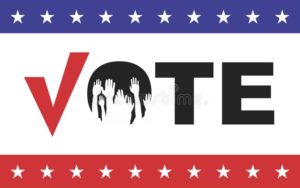
In 2020 immediately following a new board election, a member of the Farmcolony Board of Directors abruptly resigned from the board. His reason for resigning, as he stated at the time, is to comply with our Declaration of Trust which set the initial number of board directors at five. The resignation from the board raised many questions, such as what is a Declaration of Trust and what role does it play in the governance of our association?
It’s complicated.
In 1983, eight years from the founding of Farmcolony in 1975, the membership met and voted to amend its bylaw Article IV, Directors, Section 1, Number and Qualification to change the number of directors on its board from five directors to seven. The rationale given at the time for amending the bylaw is that seven directors are more representative of the community. The Farmcolony Board of Directors consisted of seven directors for over forty years until 2020 when the director, along with a second director, resigned from the board. The Board of Directors has not refilled the two seats vacated by those resignations as the bylaws require and is now out of compliance with our bylaws.
In 2022 a formal complaint was filed against the board of directors and the association for non-compliance to its bylaw Article IV: Directors, Section 6, which states:
Vacancies in the board of directors caused by any reason other than the removal of the director by a vote of the members shall be filled by vote of the majority of the remainder of the directors…
The Board of Directors adjudicated the complaint by invalidating the 1983 amendment as well as a 2011 amendment that set the number of directors at seven claiming the Declaration of Trust prohibits any amendment that changes the number of directors. Dissatisfied that the board invalidated forty years of precedent with no documentation of a legal review to support the board’s ruling, a group of association members hired an attorney for a thorough legal review. He determined that the Declaration of Trust contains provisions that allow the original bylaws to be amended and the board must either refill the two vacant seats on the board or amend the bylaws to reduce the number of directors from seven to five, or risk a legal challenge in court. The board has not disclosed any arguments from the HOA attorney that interpret the provisions in the land trust as a prohibition to amend.
We have two conflicting legal opinions and proponents for both sides in the membership. When such is the case, the matter can only be determined in a court of law. Courts require lawyers and lawyers require fees, hefty fees. The alternative is to agree among ourselves on how to resolve the issue, and we reach agreements in a homeowners’ association (HOA) through a majority vote of the membership. Each member agrees to be governed by the vote of the majority. Like it or not, that’s how HOAs work. Although the ultimate decision rests with the majority, majority votes must comply with our governing documents and meet all state laws and regulations, or they will be deemed unenforceable.
Bylaws and covenants and codes, oh my!
Community associations are legal entities governed by bylaws and codes, covenants, and restrictions which are enforced by an elected board of directors. Bylaws dictate how an HOA should run and are generally legally binding and enforceable. They establish a contract between members, defining their rights, duties, and mutual obligations and provide communities with clear communication on how exactly the board members that preside over them are held accountable while in their positions.
Typically, a HOA has three main governing documents: The Declaration (or CC&Rs – Covenants, Conditions & Restrictions), the Bylaws, and Rules and Regulations. All governing documents are interconnected, but there is a ranking; The declaration supersedes the bylaws and the bylaws supersede the rules and regulations, and there may be state laws that overrule the association’s documents. Rules and regulations, or operating procedures, usually can be changed by a vote of the Board of Directors, but the declaration and bylaws require a vote of the homeowners.
There is no governmental agency with authority to oversee homeowners’ associations. Association duties and standards must be enforced by owners and lenders through the court system or through some alternative dispute resolution process such as mediation or arbitration. If formal action is necessary, homeowners have standing to challenge HOA covenants in state court, typically in the county in which the community is located. One or more owner could challenge any board, committee, officer or manager decision through litigation or arbitration on the basis that the decision was not reasonable, made in good faith, and/or in compliance with formally established policies or procedures. It’s worth noting that state HOA statutes and community declarations often include “fee-shifting” provisions requiring a losing party to reimburse the prevailing party’s legal fees in suits involving enforcement of covenants.
The proposed bylaw amendment before the membership changes the number of directors from seven to five, which puts the association back into compliance with our bylaws. However, language in the proposed bylaw amendment implies that the Declaration of Trust has authority over the bylaws to determine the number of directors, thereby removing the right of the membership to amend the bylaw to change the number of directors on the board, a right they have enjoyed for more forty years. That assertion is contested and can be challenged in court.
Why is this important?
The rationale given at the time for amending the bylaw in 1983 to change the number of directors from five to seven is that seven directors are more representative of the community. Indeed, the current five-member board is heavily weighted in favor of the cattle operation over other interests on the farm since a majority of board directors are also involved in the cattle operation. This imbalance has created tension on the farm, which is evidenced in the number of formal complaints that have been levied against the board of directors in recent years. Would a seven-member board ease the conflicts we are experiencing within the community? We can only surmise, but more people on the board would bring more diversity to the board and better representation for differing points of view.
In Conclusion
In 1983 the Farmcolony membership amended its bylaw Article IV, Directors, Section 1, Number and Qualification to change the number of directors on its board of directors from five directors to seven. The rationale given at the time for amending the bylaw is that seven directors are more representative of the community. The Farmcolony Board of Directors consisted of seven directors for over forty years until 2020 when two directors resigned. The Board of Directors has not refilled the two seats vacated by the resignations as required in the bylaws.
The proposed bylaw amendments change the number of directors from seven to five which brings the association back into compliance with its bylaws, but it contains contentious language that removes the right of the membership to amend the bylaw to change the number of directors, a right the membership enjoyed for over forty years. That claim is disputed and can only be resolved in a court of law. Passage of the amendment as proposed could provide grounds for a lawsuit against the association, not to mention creating more division within a community that is already bitterly divided.
